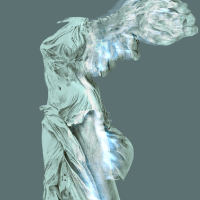
Recommended contact person
How to protect undisclosed know-how and business information against unlawful acquisition, use and disclosure?
The Cyprus Law on the protection of undisclosed know-how and business information (trade secrets) against their unlawful acquisition, use and disclosure of 2020 (164(I)/2020) (the ‘Law’) provides a number of measures against unlawful acquisition, use or disclosure of trade secrets, enabling the individuals and companies to protect their trade secrets.
A ‘trade secret’ is defined in the Law as information:
- which is secret, in the sense that, either as a whole or in terms of the exact content and layout of their components, is not widely known to persons belonging to the circles usually dealing with such information, nor directly accessible to these persons;
- which has commercial value arising from their secrecy;
- for which the person lawfully in control of, under the circumstances, takes reasonable steps to keep it secret.
The Law protects not only information which by nature is considered to be a secret, but also information which any natural or legal person who lawfully controls a trade secret (trade secret holder) has taken reasonable steps to keep a secret.
When is an acquisition, use or disclosure of trade secrets unlawful according to the Law?
The acquisition of a trade secret, without the consent of its holder is considered unlawful when it is carried out by:
- unauthorized access, misappropriation or copying of documents, objects, materials, substances or electronic records which are lawfully under the control of the trade secret holder, which contain the trade secret or from which the trade secret may be deducted;
- any other conduct which, under the circumstances, is considered contrary to honest commercial practices.
The use or disclosure of trade secrets is considered unlawful, in case it takes place without the consent of the holder of trade secret by a person who:
- has acquired the trade secret unlawfully;
- has breached a confidentiality agreement or other non-disclosure obligation;
- has breached a contractual or other obligation to restrict the use of trade secrets.
The acquisition, use or disclosure of trade secrets is considered unlawful where a person, at the time of acquisition, use or disclosure, knew or ought, under the circumstances, to have known that the trade secret was acquired, directly or indirectly, by another person who was using or disclosing the trade secret unlawfully.
There is a number of exceptions to the unlawful acquisition, use or disclosure of trade secrets, including the right of expression and information.
What steps can a secret trade holder take to protect its trade secrets?
First of all, trade secret holders should ensure that they undertake all reasonable steps to protect the secrecy of their trade secrets. These may include use of non-disclosure agreements (NDAs), implementation of internal policies and procedures to secure the non-disclosure of their trade secrets etc.
In case an unlawful acquisition, use or disclosure takes place, the trade secret holder may, according to s. 10 of the Law, file a relevant application to the Court. The Court, in such cases, may order any of the following provisional and precautionary measures against the alleged infringer:
- the cessation of or, as the case may be, the prohibition of the use or disclosure of the trade secret on a provisional basis;
- the prohibition of the production, offering, placing on the market or use of infringing goods, or the importation, export or storage of infringing goods for those purposes;
- the seizure or delivery up of the suspected infringing goods, so as to prevent their entry into, or circulation on, the market.
- The court may also, under certain circumstances, order an infringer to compensate the trade secret holder for the damages suffered due to the unlawful acquisition, use or disclosure of trade secret(s).
The information provided by A.G. Paphitis & Co. LLC is for general informational purposes only and should not be construed as professional or formal legal advice. You should not act or refrain from acting based on any information provided above without obtaining legal or other professional advice.
For further information on how to protect your trade secrets, please contact us.














